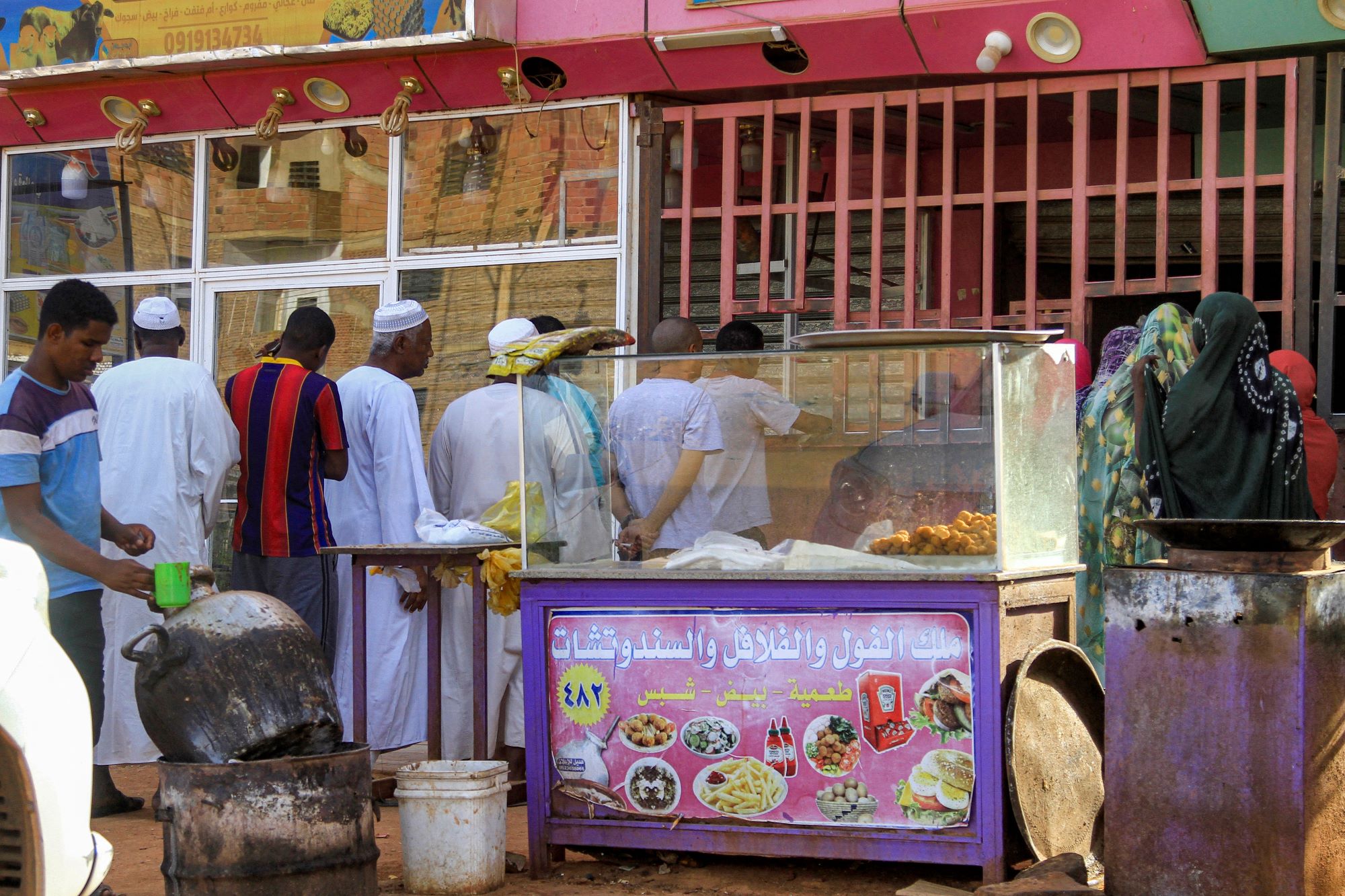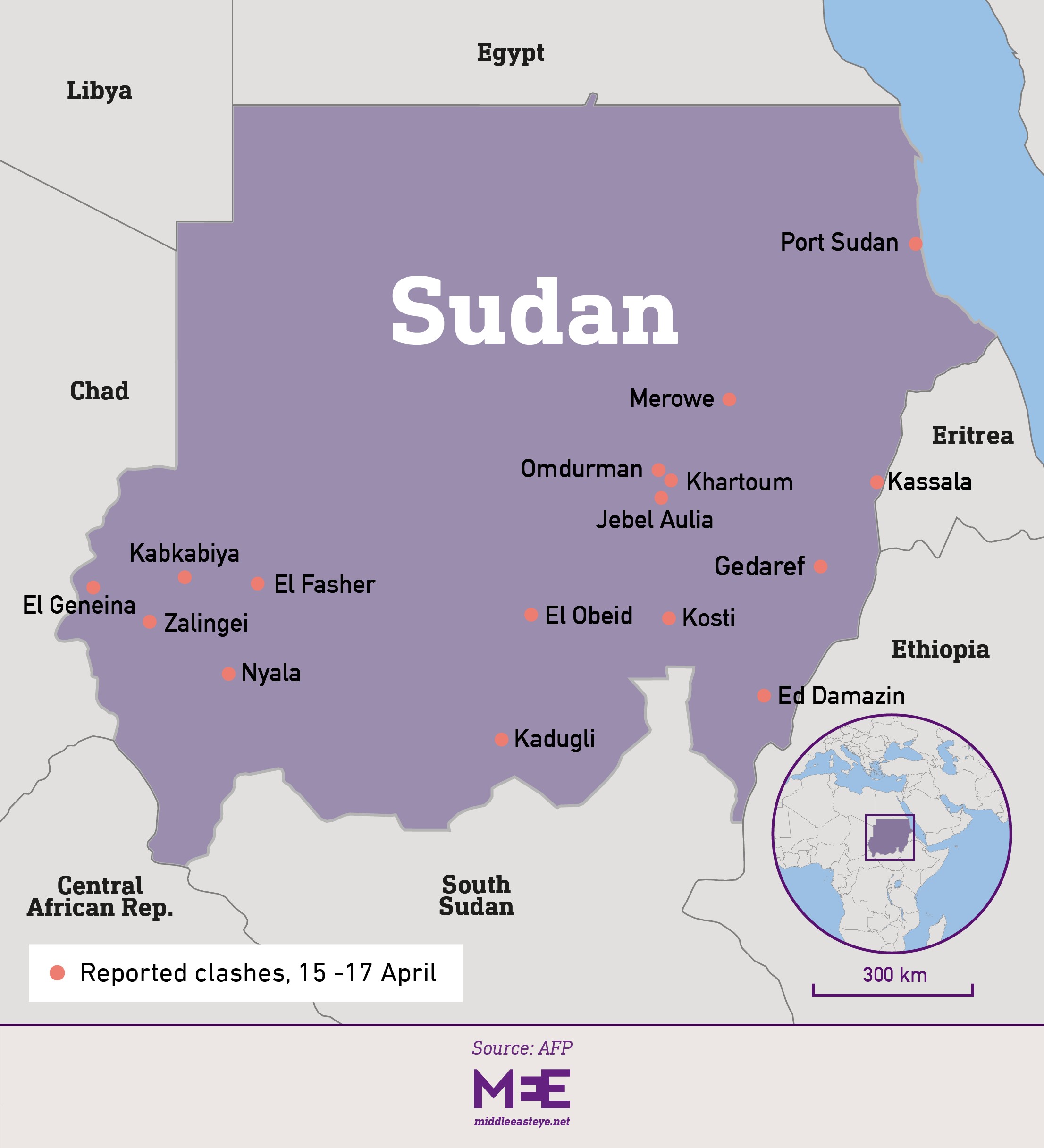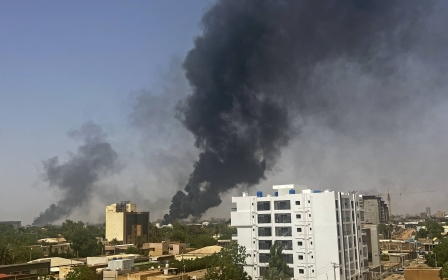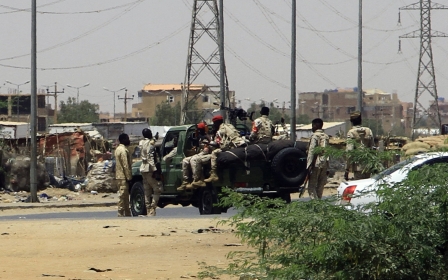Sudan turmoil: Khartoum a 'city of ghosts' as fighting rages and buildings burn
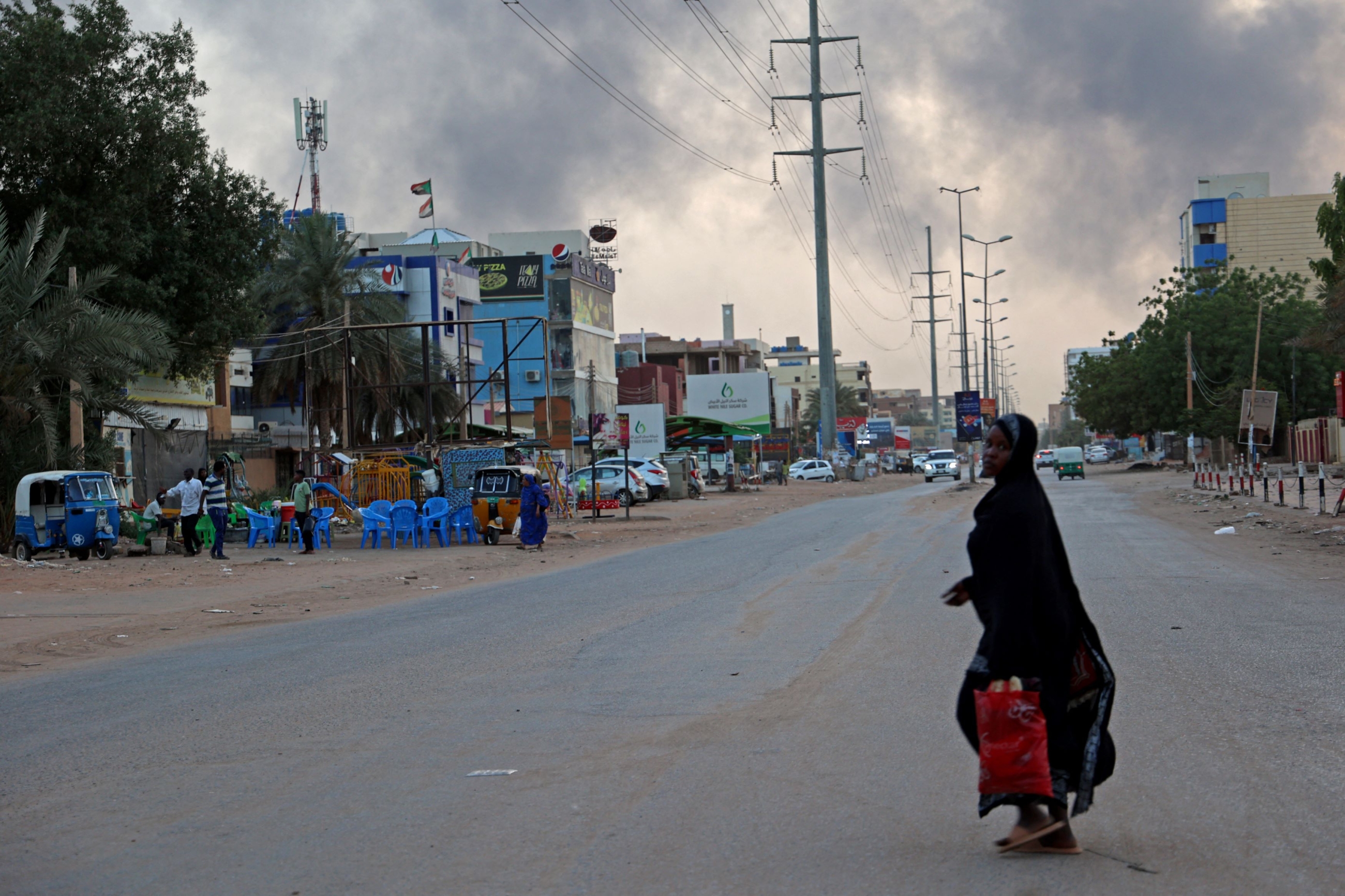
Three days of intensive fighting in Khartoum have taken their toll, with buildings and infrastructure damaged, food and fuel supplies running short, and terrified residents hiding in basements as explosions, gunfire and air strikes continue to shake the Sudanese capital.
The battle for control between the Sudanese Armed Forces (SAF) and the paramilitary Rapid Support Forces (RSF) was still ongoing on Monday evening, with at least 97 civilians and potentially dozens of fighters killed and about 1,000 injured nationwide, according to the Central Committee of the Sudanese Doctors (CCSD).
The city’s already weak infrastructure has quickly collapsed. With electricity cut for the past 24 hours, many neighbourhoods were again plunged into darkness as night fell. But the skyline was illuminated by the glow of buildings set ablaze by SAF air strikes, or by artillery and anti-aircraft weapons fired in response by RSF fighters.
The violence, which exploded in Sudan over the weekend, stems from disagreements surrounding the integration of the RSF - one of the most powerful forces in the country - into the regular military.
The RSF's leader, Mohamed Hamdan Dagalo, better known as Hemeti, had previously aided the military leader and de facto ruler, General Abdel Fattah al-Burhan, in a successful coup in October 2021. But their uneasy alliance has now thoroughly broken down.
New MEE newsletter: Jerusalem Dispatch
Sign up to get the latest insights and analysis on Israel-Palestine, alongside Turkey Unpacked and other MEE newsletters
A huge fire could be seen burning on Monday near the army headquarters in central Khartoum. Explosions could be heard coming from the same location.
Residents in neighbourhoods close to the headquarters have left their homes or stayed in the basements of their buildings for hours because of the continuous shelling.
Hala Ahmed, a resident of the Khartoum 2 neighbourhood, told Middle East Eye that the windows of her apartment had been broken when a bomb fell nearby.
“This is the loudest sound I heard in my life,” Ahmed said.
“The windows shattered, the doors were blown open, and some of the light bulbs and glasses also smashed. It seemed to be caused by a bomb from one of the aircraft that was around this morning.”
A short tour of the city on Monday revealed damage to the international airport, one of the main electricity power stations, ministry buildings, and residential buildings.
The army headquarters remained the focus of the most aggressive clashes on Monday evening.
Hospitals caught in fighting
As the fighting evolved into street battles, the two warring sides used school buildings and hospitals as locations for checkpoints and as cover from enemy fire, according to doctors and teachers.
The CCSD said that hospitals had also been caught in the crossfire.
“Hospitals and health institutions in Khartoum and cities all over Sudan are being hit with heavy artillery and firearms. Severe damages have been confirmed to Al-Shaab Teaching Hospital, Ibn Sina Specialist Hospital and Bashayer Hospital, as a result of clashes and mutual shelling between the armed forces and the Rapid Support Forces in the surrounding area,” the CCSD said in a joint statement with the doctors' syndicate.
One doctor told MEE they were facing "big troubles" in the hospitals because of shortages.
"The lack of electricity is also hindering our work," the doctor said.
With police absent from the streets, and even from police stations in some neighbourhoods, residents chose to stay home not only because of the fighting but because of a growing sense of lawlessness.
A resident from the central Alamarat district described Khartoum as a “city of ghosts”, referring to the darkness, the empty streets and some reports of robberies overnight.
By Monday, gas and petrol were in short supply, and many residents were struggling to buy basic products including bread.
Fears for future
With both sides claiming to be in control of key locations, some residents said they were uncertain what was happening and fearful about the future.
In a statement on Monday, the SAF claimed to be in control of key RSF bases at Merowe and other locations. It said it had arrested dozens of RSF fighters and urged others to surrender, giving guarantees of their safety.
The RSF in a statement said that it was in control of the presidential palace, the Jebel Aulia air force base, and a part of the army headquarters.
It accused the SAF of using air strikes in densely populated residential neighbourhoods.
“We call on the international community to intervene and monitor the violations committed by SAF under the command of [Burhan].
"We say that we are about to achieve our full victory and we believe that it’s the victory of the Sudanese people. We are also reiterating our commitment to the political process in order to return to the transitional path,” it said.
On Monday, UN Secretary-General Antonio Guterres called for Sudan's warring parties to "immediately cease hostilities", warning that further escalation "could be devastating for the country and the region".
This article is available in French on Middle East Eye French edition.
Middle East Eye delivers independent and unrivalled coverage and analysis of the Middle East, North Africa and beyond. To learn more about republishing this content and the associated fees, please fill out this form. More about MEE can be found here.


